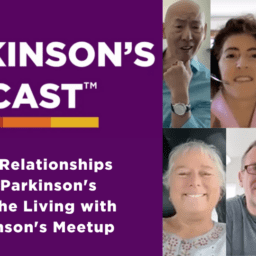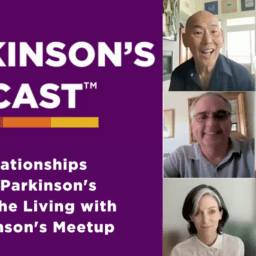This week, we had the opportunity to watch and listen to Dr. Gregory Pontone and Dr. Soania Mathur talk about depression, anxiety, and apathy and how to manage them. One of the key issues they discussed is the difference between depression and apathy and how they show up in different ways.
Here's a simple way of looking at it.
When someone is depressed, emotions are present. They care. They may feel sad, lonely, irritable, and hopeless, but they still care.
When someone is apathetic, few to no emotions are present. The person doesn't feel sad or guilty or suicidal. They just don't care. (Note: Apathy often goes in parallel with cognitive decline in people with Parkinson's.)
As a care partner, therefore, what can you do when your person with Parkinson's shows signs of apathy?
Dr. Pontone suggested the following:
- Potential medication options may include Citicoline, Rivastigmine (Exalon), or for those with DBS, a dopamine agonist. Talk to your person with Parkinson's doctor to see if one of these options might be good for them.
- Provide a structured environment. Someone who is apathetic is not going to make a schedule, be proactive, or take the initiative. They don't care enough to do any of those things. However, they will choose the path of least resistance; so, if you set something up for them, they will likely go with you. If your person really struggles to do anything, schedule lunches with people they enjoy, dedicate Tuesdays to participating in an activity they like, and take them with you to your activities and appointments. Move from what do you want to do to this is what we're going to do. That strategy won't work with someone who is depressed, but it may very well work for someone who is apathetic.
- Incentivize exercise. Getting someone with Parkinson's to exercise is often a challenge for care partners. As a care partner, you know how important it is for your person to exercise; however, no matter how many times you remind them of the evidence, they won't do anything about it. So, get creative. You can say, "We're going for a walk and then we'll go to that Indian restaurant you like for lunch." Or, "John is coming over to take you to his boxing class." Try to tie exercise to something they enjoy. Then, keep at it. It's not going to be easy, and it will test your patience and energy; however, it will also pay off.
Want More Practical Articles Like This?
Much more can be found in our latest edition of Davis Phinney Foundation’s Every Victory Counts® manual. It’s packed with up-to-date information about everything Parkinson’s, plus an expanded worksheets and resources section to help you put what you’ve learned into action. Request your copy of the Every Victory Counts manual by clicking the button below.


















